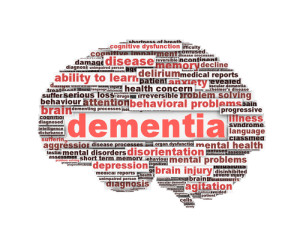Understanding the Stages of Dementia Can Help You Provide Better Care
by Heather Imhoff, MSW, LMSW, Aging Life Care Association™ Member
Dementia is a progressive and often times, heart-breaking disease. Though every individual is different, there are three primary stages of dementia, each with its own unique set of symptoms. Different care strategies for each stage allow for a reduction in frustration and needless suffering for the caregiver as well as for the individual with dementia.
Mild Cognitive Impairment (MCI)
In the early or mild stages of dementia, cognitive deficits start to become apparent to close family and friends. The person generally has more difficulty with remembering names, finding words, and concentrating. He/She may get lost while in unfamiliar settings, or have increasing difficulty performing demanding work. Social interaction generally decreases. The person may start withdrawing from situations that have become challenging. Denial of the problem by the individual with MCI is not uncommon.
In this stage, it is helpful to assist the person in creating systems to help compensate for memory impairment. This might include utilizing calendars or planners, or offering to accompany the person to appointments.
 According to the Alzheimer’s Association, Dementia is a general term for a decline in mental ability severe enough to interfere with daily life. Memory loss is an example. Alzheimer’s is the most common type of dementia.
According to the Alzheimer’s Association, Dementia is a general term for a decline in mental ability severe enough to interfere with daily life. Memory loss is an example. Alzheimer’s is the most common type of dementia.
Moderate Dementia
As dementia progresses to the moderate stage, the individual generally exhibits more noticeable deficits in short term memory and loss of memory for significant details such as his/her own phone number or address. He or she may have difficulty recalling details such as the name of the company he/she worked for, where he/she went to school, and the names of some family members.
Repetitious questions and/or development of anxiety are common. Complex tasks including using appliances, computers, or phones can become increasingly difficult, and highly stimulating situations (lunch in a busy deli, sporting events, etc.) can be overwhelming. People with moderate dementia are typically still able to manage personal care tasks including bathing, using the bathroom, and dressing, though they may need limited assistance, such as choosing clothing that is weather-appropriate.
Routines should be modified to help the individual cope with his/her changing cognitive abilities. Consider small gatherings of people in quiet, familiar settings, or investigating adult day centers to meet the person’s social needs. The individual might also need regular support from others for cueing and direction to complete tasks successfully. Consider safety measures including disconnecting stoves, offering alternative transportation options, and supervision if the person is prone to wandering.
Severe Dementia
By the late stages of dementia, the person usually needs reminders or hands-on assistance with most areas of daily living. He or she is largely unaware of events happening around him/her and may forget the faces of close family members (spouse, children). Verbal abilities generally change and diminish. Challenging behaviors, especially with unfamiliar tasks or in unfamiliar settings, are common.
An individual with severe dementia will need support at all times. If living at home, family members or paid caregivers can offer this support. Alternatively, there are memory-specific residential care facilities that can provide the specialized care the person needs. A predictable routine is vitally important as the person’s abilities to cope with new situations are limited. Further, efforts to reorient the person are usually ineffective and can cause more anxiety and confusion. Using music, photographs, movies, etc. from the distant past can be comforting to the person and help caregivers to connect.
Strategies for Caregiving During any Stage of Dementia
Caring for someone with dementia at any stage can be challenging and emotionally taxing. Having patience and compassion for the person and yourself as a caregiver will help alleviate distress and maximize your ability to cope with changes as the dementia progresses.
If you suspect you or a loved one may have dementia, consult with a professional right away. Early intervention and diagnosis allows for the person to receive the maximum benefit to possible treatments, as well as to plan for future care. An Aging Life Care Professional™ can help you build the right team of medical, financial, legal and care providers to manage the journey. Find an Aging Life Care™ Expert neareast you at aginglifecare.org.
About the author: Heather Imhoff has eight years of experience as an Aging Life Care Professional in both publicly and privately funded sectors. She is currently a care manager at EGIS Care & Support in Santa Fe, New Mexico. Follow Heather on Twitter at @egis_care or email her at heather.egisnm@aol.com.
This blog is for informational purposes only and does not constitute, nor is it intended to be a substitute for, professional advice, diagnosis, or treatment. Information on this blog does not necessarily reflect official positions of the Aging Life Care Association™ and is provided “as is” without warranty. Always consult with a qualified professional with any particular questions you may have regarding your or a family member’s needs.